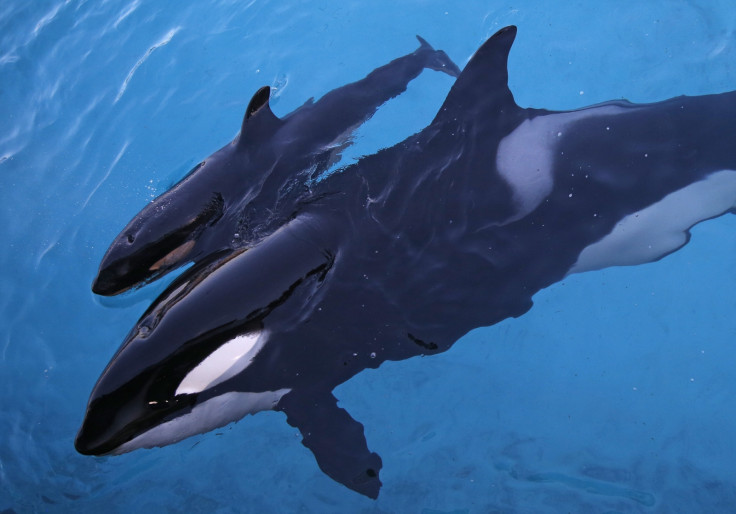Russia to release 100 orcas, belugas kept in 'whale prison'
"An official decision has been taken to release all the animals into the wild," Oleg Kozhemyako, the governor of Russia's Primorsky Region, said.
The governor of Russia's Primorsky region said Monday that the country planned to release almost a 100 whales held in cages – a year after images of several orcas and belugas confined in cramped spaces in a bay near the Sea of Japan port city of Nakhodka surfaced in 2018, drawing worldwide criticism.
Prior to their rescue, the animals are being held in tiny enclosures off Russia's Pacific coast. "An official decision has been taken to release all the animals into the wild," Gov. Oleg Kozhemyako said, the Guardian reported. "Scientists from Cousteau's team and Russian scientists will decide when and which animals to release."
The four companies which originally captured them had planned to sell them to China – which houses 76 theme parks and is a booming market for marine mammals. However, the Kremlin intervened and ordered the local authorities to figure out a way to release 87 belugas, 11 orcas, and five baby walruses into the wild without harming them. The animals were in danger of hypothermia since they were surrounded by sea ice.
What began as a global outcry has begun to evolve into a work of international cooperation as people of many nationalities gathered in Moscow to begin a long-term effort to return 97 illegally-captured orcas and beluga whales to the ocean. https://t.co/gXm95BTSHp
— Whale_Sanctuary (@Whale_Sanctuary) April 6, 2019
To that end, Jean-Michel Cousteau, son of French marine expert Jacques Cousteau, was brought in last week by the Russian government to evaluate the conditions in which the animals were being kept. On Monday, Jean-Michel signed a joint agreement with Russian scientists to free the mammals. The process might be carried out in phases.
In addition, a special rehabilitation facility will be set up for the whales, which closely resembled their natural habitat. The facility would be used to treat animals that were hurt in any way while confined. According to Russian scientists, rehabilitation efforts for the captured animals will cost an estimated $4.6 million.
"I know it's a lot of work, but I have no doubt that we are going to succeed," Jean-Michel told reporters, the Moscow Times reported.

He also met with Russian Natural Resources Minister Dmitry Kobylkin in Moscow, Thursday. After the meeting, Kobylkin explained why summer was the best time to begin the process of releasing the animals.
"We couldn't release the animals in the winter, it would have simply killed them," Kobylkin said, Fox News reported. "We can and must do this work in the coming summer."
Russia, which allows live capture of marine mammals solely for scientific or educational purposes, announced in March that they had brought charges against the companies which captured the animals.
In February, actress-turned-animal rights champion Pamela Anderson penned a letter to Russian President Vladimir Putin, urging him to speed up the release of the whales being kept in what environmentalists have branded the "whale prison."
"I understand that the Russian Government has taken initial steps toward the release of these magnificent creatures back into the wild, in their home waters of the Russian Far East," she wrote in the letter. "I am very grateful for this news. I understand that a final decision has not yet been made to release the orcas and belugas back into the wild, and I respectfully ask that you resolve this by ordering their release."
Around the same time, actor Leonardo DiCaprio tweeted a petition for the release of the orcas and belugas.
This article originally appeared in IBTimes US.
This article is copyrighted by International Business Times, the business news leader





















